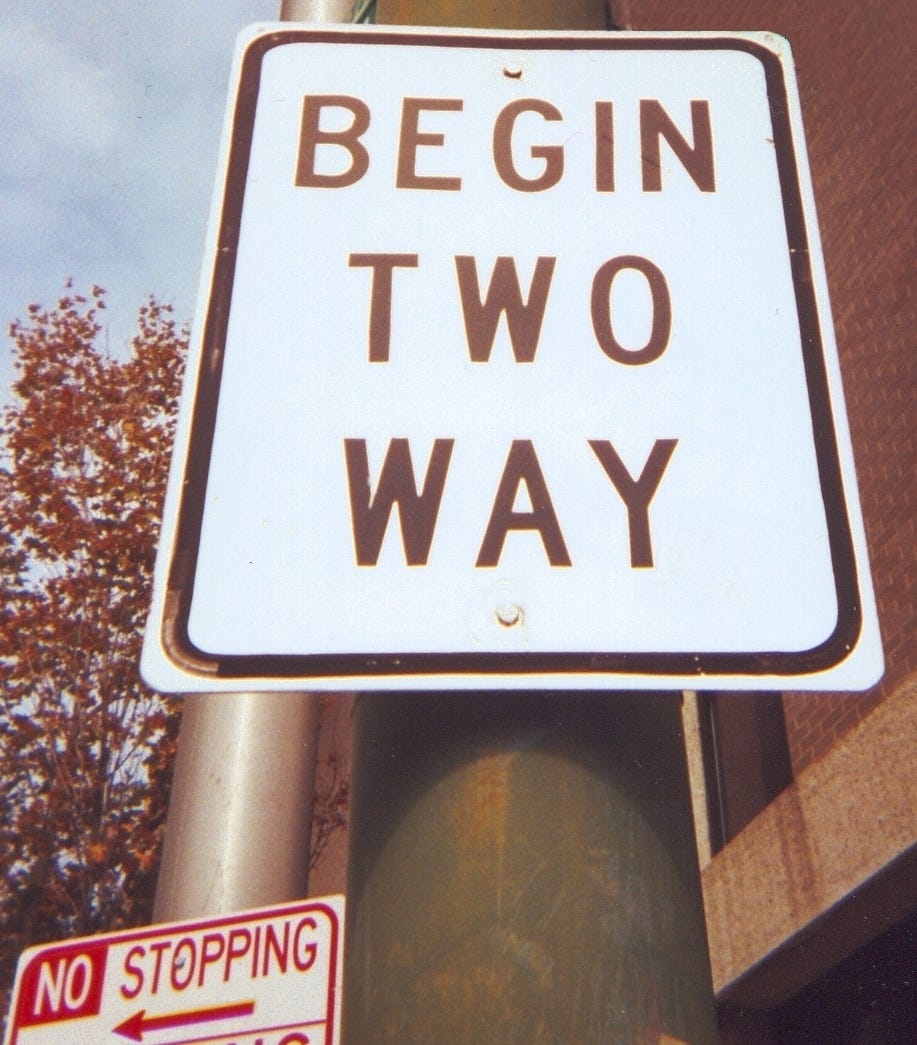Imagine that the world 150 years ago was different from how it actually was and it was men, rather than women, who first saw through the mind games the culture played on us to keep men doing what the culture wanted men to do and to keep women doing what the culture wanted women to do. The culture really wasn’t interested in anything called work-life balance; it wasn’t interested in balance at all. It needed to eke every bit of efficiency out of the fact that the average man was marginally more adept than women in some ways and the fact that the average woman was marginally more adept than men in other ways. Fifty-one percent was classified as one hundred. Forty-nine percent was reduced to zero. No leeway. The culture was struggling to keep people fed and kids cared for.
But some men who called themselves the Sufferers started whispering among themselves that this high risk / high reward lottery the culture forced them into was a real scam. First, most men had extremely low odds of a big payoff. Second, the payoff wasn’t really all that effective at generating happiness. Stuff. Materiel. The cost of a lottery ticket? Stress, strife and competition instead of cooperation and community.
What did the Sufferers really want? More time with the people they loved and who loved them back. Less time with people who related to them only for advantage or, worse, to compete them out of business, promotions and jobs. Or as bosses intent only upon wringing every iota of profit and productivity out of them.
The Sufferers found more and more that other men agreed with them. Eventually they dared to insist that they wanted what women had: more time with those people they loved and who loved them back. At last, they conceived the notion of work-life balance. They cut back their time at work and started spending more time at home, demanding equal participation in the hands-on raising of their kids and accepting equal participation in the running of the household — though they brought their own distinctively male style of domestic duties and decidedly different judgments about when a house was clean enough.
The Sufferers published dozens and hundreds of tracts about why they deserved and how to enforce Equal Parenting Opportunity over the objections of reluctant women.
Many women struggled with the new regime. “What makes me a woman if a man can raise the kids, keep the house and make the meals?” The most candid among them acknowledged the hurt they felt when one of their children, running into the house with a skinned knee, rushed right past his mother, crying with outstretched arms, “Daddy!”
Well-meaning people began to speak up about the new lot of women. They recommended advanced training in the newest home appliances to help them adjust to the new realities of their role and suggested it might be good to offer women “maternity leave” from domestic duties upon the birth of a child.
But somehow it didn’t seem enough for the increasingly bitter housewives. More and more they were criticized for their selfish unhappiness over having been made to give up their Female Privilege.
Soon enough it became popular in the newspapers and magazines, and then on radio, to wonder aloud “Are women really even needed? Are we witnessing The End of Women”? And of course that helped not at all.
Some of the increasingly bitter housewives started suggesting that maybe Equal Parenting Opportunity was actually a good thing… if it were balanced with something that might be called Equal Employment Opportunity to afford them a chance to fill the partial in the world of work by men now spending more time at home building loving relationships with their children.
The men, of course, resisted intrusion into their economic domain, and the publishers of the Equal Parenting Opportunity tracts found a strong and steady market for diatribes masquerading as research purporting to show that women and their Antiseptic Femininity were simply and totally unfit for the rough and tumble world of employment outside the home.
The problem lived on for decades — and still remains to be solved — because for some reason it has been insisted that there simply must be a way to help women achieve greater happiness as housewives without requiring men to offer up anything at all in the world of paying work.
Fingers are wagged with scolds about zero-sum thinking, as if mutually beneficial exchanges between partners who have complementary needs would result in nothing new. Like synergy.



